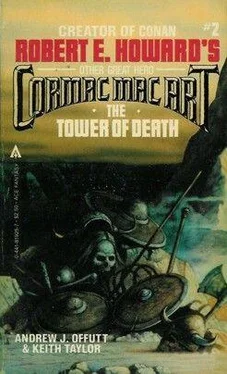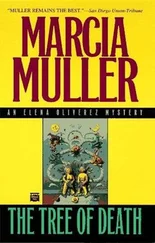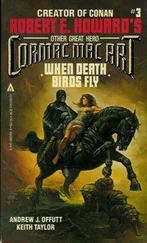Andrew Offutt - The Tower of Death
Здесь есть возможность читать онлайн «Andrew Offutt - The Tower of Death» весь текст электронной книги совершенно бесплатно (целиком полную версию без сокращений). В некоторых случаях можно слушать аудио, скачать через торрент в формате fb2 и присутствует краткое содержание. Жанр: Фэнтези, на английском языке. Описание произведения, (предисловие) а так же отзывы посетителей доступны на портале библиотеки ЛибКат.
- Название:The Tower of Death
- Автор:
- Жанр:
- Год:неизвестен
- ISBN:нет данных
- Рейтинг книги:3 / 5. Голосов: 1
-
Избранное:Добавить в избранное
- Отзывы:
-
Ваша оценка:
- 60
- 1
- 2
- 3
- 4
- 5
The Tower of Death: краткое содержание, описание и аннотация
Предлагаем к чтению аннотацию, описание, краткое содержание или предисловие (зависит от того, что написал сам автор книги «The Tower of Death»). Если вы не нашли необходимую информацию о книге — напишите в комментариях, мы постараемся отыскать её.
The Tower of Death — читать онлайн бесплатно полную книгу (весь текст) целиком
Ниже представлен текст книги, разбитый по страницам. Система сохранения места последней прочитанной страницы, позволяет с удобством читать онлайн бесплатно книгу «The Tower of Death», без необходимости каждый раз заново искать на чём Вы остановились. Поставьте закладку, и сможете в любой момент перейти на страницу, на которой закончили чтение.
Интервал:
Закладка:
When she moved, he did not let her go.
She uttered a small sound, neither protest nor great encouragement. The sound of query was in it. Cormac made her definite answer. The girl from Nantes was drained and passive, but not completely, and Cormac postponed both planning and nap for a time, and slept the better.
CHAPTER EIGHT: A Bargain with Pirates
At dinner the two newcomers met more of the king’s cronies and relatives-the comites -and them without helms and armour, now. Some were friendly and others disdainful of a pair of foreign pirates in borrowed tunics. All the others were better attired for dinner, though Cormac noted that some of the fancified leggings and decorated tunics or robes showed wear, and too he saw the marks of re-sewing; mending of hems and little snags. He had first frowned at the leggings provided him; they bore a yellow chain-design running up the outside of each leg. The fabric itself was slate in hue.
He and Wulfhere had too their first view of Queen Venhilda. Tall Veremund’s wife was, and splendidly formed, so that she should have been a commanding presence. She was not. Her appearance was pale and haggard. She seemed unwell, with a deadly lassitude on her. This was made but the more noticeable by the richness of her garments. And too… her gaze was strange.
When Cormac was introduced to her, the large grey blue eyes rested on his, and never blinked. Nor did she blink at any other time that he observed. Her shadowed lids seemed fixed, as with congealed wax, and never so much as flickered. Cormac at last felt a little chill and looked on Galicia’s Queen no more.
Not so Clodia! Clodia was happily resplendent in a lovely gown of red vertically striped with beige. It had been provided by a lady of the court, of course, for the merchant’s daughter introduced as Lady Clodia. She received more than a little attention, Clodia did. She was visibly delighted to be seated between Irnic Break-ax and a lean, broad-shouldered Hispano-Roman who obviously bore the blood of both peoples.
My Lady Clodia , Cormac mused. She will never carry it off, not buxom Clodia; she must be hard put not to pick up a pitcher and serve wine!
Each time he glanced at Princess Eurica, he caught her in the act of averting her eyes, so that he knew she’d been witching him. The mac Art tried to look elsewhere.
The princess’s behaviour was true, too, of Zarabdas the mage. Cormac wore the Egyptian sigil within his Suevic tunic of brown-stitched blue, and forebore lifting a hand to the chain. Was that Zarabdas’s interest? Why did the Palmyran watch him when Cormac’s own gaze was elsewhere? Had Zarabdas another interest in the Gaelic pirate who had contracted with the Suevic king he served in Hispania as… adviser?-as mage?-seer?
And Eurica. Was she one more fascinated female like others Cormac had known, of varying ages and races. The wife of the lord Hermanric Marcellus right now, for instance, and her name a very Roman “Plotina.” She favoured the Gael with her dark-eyed gaze, and did not look away when his eyes swept her. Look away, milady , Cormac mused; mac Art has rules about women with husbands; ’s called self defense!
The queen was unusual enough among ruddy, healthy, buxom women. There was something else about her that caught Cormac’s eye, with the fascinatingly fluid motions of her hands-one of her three rings. The band was plain enow, simply a little circle of gold. Atop it though, caged in two strips of gold wire, flashed a most extraordinary opal. So he supposed it to be; he had seen two others similar, though not so beautiful. A thousand tiny speckles of colour lay imbedded in the black stone, like the stars of night save that these were of yellow and red and blue and shades between. A gift of love, Cormac mused, and he’d lay wager.
Putting women and rings out of his mind, Cormac turned to the man beside him.
This minor lord of the Suevi seemed delighted to know him and Wulfhere. Some were, whatever their motives, and Cormac was accustomed to those who nigh fawned, fascinated with men of deeds striding the world ahead of a wake of blood. He asked Lord Rhodoghast about Zarabdas, and was bidden to call Rhodoghast by name alone.
“Zarabdas,” Rhodoghast said, nodding. “To begin with, the man may or may not be a wizard!”
Realizing that the Palmyran’s powers were not known to everyone, Cormac made no comment but affected to show the surprise expected of him.
“Aye! He came here two years agone, mysteriously methinks. Said he sought sanctuary in a land he knew had not really embraced the faith of Jesus Christus. He was a fugitive from the Visigothic lords, he claimed, having offended the emporer with an over-vociferous opposition to his religious policy.”
Cormac nodded encouragingly. That policy was the making Christian of all “subject” lands. Or so the emperor said, living in the past of imperial glory and power. Stupid, Cormac thought. Emperors came and went, as would surely this religion designed for slaves who needed something to look forward to-such as a slice of honeycake in the sky. How surprised the “Saints” or Christians must be to discover that what followed death was return to earth in a new form, as a helpless babe fated to begin all anew!
“Just over a month after the arrival of Zarabdas,” Rhodoghast said, “Queen Venhilda fell ill-very ill indeed. Eventually the court physician Lucanor advised the king that she could not live. It was then that Zarabdas prevailed upon Veremund,” Rhodoghast said, lowering his voice even more as he pronounced his king’s name unadorned, “to allow him to attend our lady queen. Lucanor Antiochus had given up in defeat, and so there seemed little to lose. Whilst Veremund was considering, Lucanor sought to make a religious issue of it. The king was angered by that and the threat implied, and he bade Zarabdas do what he could for Venhilda.’
“This Lucanor…”
Rhodoghast gave his head a jerk and made a swift gesture. “A Christian, of course. A… semi-sufferable cross-wearer from that far old place of Antioch. Not as dark as one would expect; he be Greek or has Greek blood.”
Rhodoghast lifted his winecup, waited to catch the eye of a serving lad, and glowered at him. His and Cormac’s cups were immediately filled. Cormac lifted it, looked over its rim to find the Lady Plotina Marcella gazing at him. Rather than look away she held his glance, and ran her tongue, slowly, all around her lips. Without acknowledgment Cormac returned his attention to Rhodoghast.
“Is’t true you have sunk a score of ships?”
“It is not,” Cormac said. “It’s but two we’re after sinking, and four others we’ve disabled. Nor have Wulfhere and I done death on so many as is said. And hear this Rhodoghast: neither of us has ever slain any man who did not have a weapon in his hand. Now what ye’re after saying of the queen interests me, for she is thin and wan. Ye were going to tell me that Zarabdas cured her.”
“How did ye know?”
“She be not dead.”
“Ah. Aye, within two days it was obvious that she was recovering. Within four she was on her feet again, though weak. In less than a month she was fully recovered-or as ye see her now. In truth she’s never been any sort of buxom woman, though. Since then Zarabdas had been naturally enough held in high esteem by the king and queen. Gradually he’s grown strong in the king’s counsel, as well. All know he is a most wise man and knowledgeable in physick. Many of course wonder if he be mage or no; he is a mystery among us who keeps much to himself and shares counsel only with Veremund and Venhilda. Some fear his influence; others are thankful for it. Some have naturally reminded that it was just after he arrived among us that my lady queen fell ill, and that it was most convenient for him to gain the king’s favour.”
Читать дальшеИнтервал:
Закладка:
Похожие книги на «The Tower of Death»
Представляем Вашему вниманию похожие книги на «The Tower of Death» списком для выбора. Мы отобрали схожую по названию и смыслу литературу в надежде предоставить читателям больше вариантов отыскать новые, интересные, ещё непрочитанные произведения.
Обсуждение, отзывы о книге «The Tower of Death» и просто собственные мнения читателей. Оставьте ваши комментарии, напишите, что Вы думаете о произведении, его смысле или главных героях. Укажите что конкретно понравилось, а что нет, и почему Вы так считаете.












